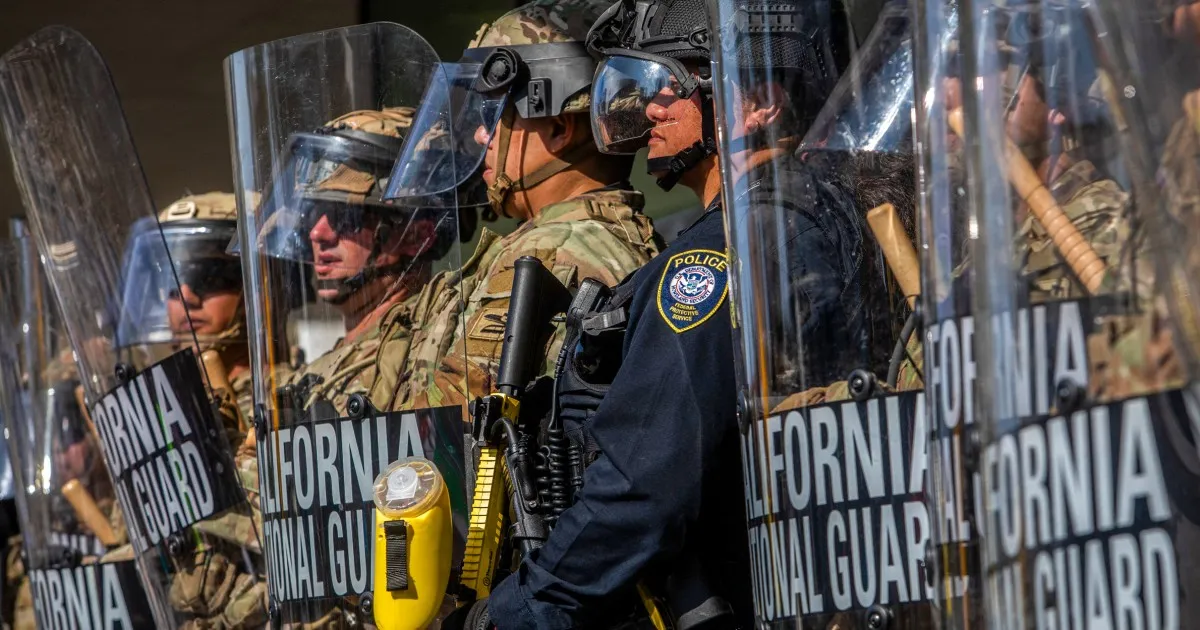
In a significant legal ruling on Tuesday, a federal judge in California determined that the Trump administration breached the Posse Comitatus Act by deploying 4,000 National Guard troops and 700 Marines to Los Angeles in June. U.S. District Judge Charles Breyer issued a detailed 52-page ruling, stating that evidence presented at trial revealed a systematic use of armed soldiers—often obscured by protective armor—alongside military vehicles to establish protective perimeters, implement traffic blockades, and engage in crowd control within the city.
Judge Breyer emphasized that the actions taken by the Trump administration constituted a violation of the Posse Comitatus Act, a 19th-century law designed to limit the use of military force in domestic law enforcement. This ruling represents a significant challenge to President Donald Trump's approach to deploying troops in urban areas as a strategy to combat crime, which critics have labeled an overreach.
The deployment in Los Angeles occurred prior to similar actions taken in Washington, D.C., which sparked outrage among opponents and local residents. During a three-day trial last month, California's legal representatives argued that Trump had exceeded his authority by sending federal troops to quell protests that erupted in response to his controversial immigration policies.
California's legal team requested Judge Breyer to mandate the return of control over the remaining troops to Governor Gavin Newsom and to prohibit the military from participating in the execution of federal laws. The Department of Justice countered, asserting that the deployment was imperative for the protection of federal property and personnel, claiming that the actions fell within a narrow interpretation of the Posse Comitatus Act.
This 1878 statute restricts the president's ability to utilize the military as a domestic police force without Congressional approval. Judge Breyer noted in his ruling that while protests in Los Angeles did occur, there was no evidence of a rebellion, nor was civilian law enforcement unable to manage the situation effectively.
In his ruling, Judge Breyer ordered the Trump administration to cease the use of military troops in California for enforcing laws, including arrests, searches, crowd control, and other law enforcement activities, unless circumstances warrant invoking the Posse Comitatus Act. He expressed concern that the president's intentions to deploy troops in additional cities could lead to the establishment of a national police force with the President as its chief.
The trial highlighted contrasting views on the necessity of military presence. Justice Department attorney Eric Hamilton argued that the deployment was intended for the protection of law enforcement, while Judge Breyer sought clarity on the limitations of the president’s authority under the Posse Comitatus Act.
California Deputy Attorney General Meghan Strong contended that the presence of a military force in Los Angeles contradicted established policies against military involvement in civilian life and instilled fear among the populace. She pointed to the adverse effects on local economic activities, citing the closure of restaurants and cancellations of events as consequences of the troop deployment.
In June, the Department of Defense ordered the mobilization of approximately 4,000 California National Guard members and 700 Marines to Los Angeles. Currently, several hundred National Guard members remain stationed in the city, while all Marines have returned to their regular duties.
The trial featured testimonies from three pivotal figures, including Maj. Gen. Scott Sherman, who commanded the National Guard troops. Both Sherman and William Harrington, deputy chief of staff for the task force, indicated that intelligence assessments suggested minimal risk to immigration officers during operations. However, during cross-examinations, Judge Breyer pressed for clarity on the limitations of military intervention.
Hamilton maintained that the National Guard and Marines were performing a protective role, arguing that this did not conflict with the Posse Comitatus Act. Judge Breyer's questions reflected deep concern regarding the potential implications of such military presence, suggesting that it could lead to a scenario where federal officers are deployed across the nation based on the president's assessment of threats.